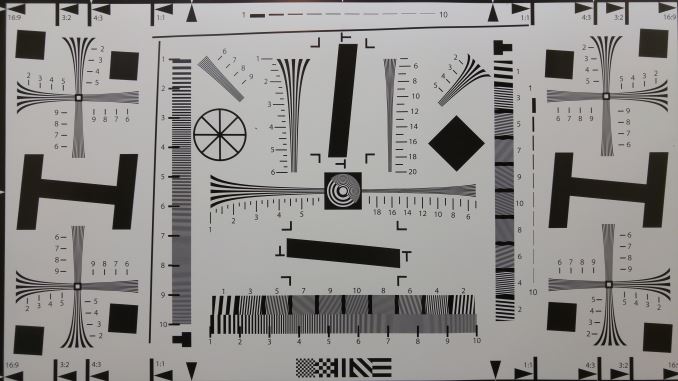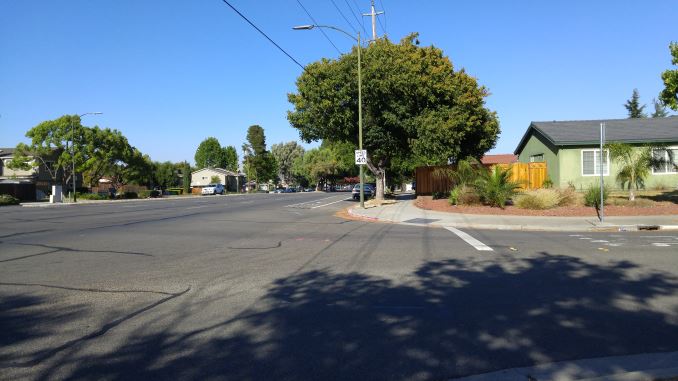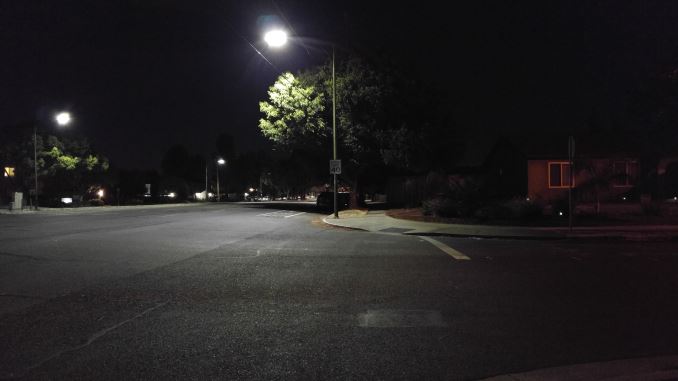The LG G4 Review
by Joshua Ho on July 30, 2015 10:00 AM EST- Posted in
- Smartphones
- Qualcomm
- LG
- Mobile
- Snapdragon 808
- LG G4
Still Image Performance
Now that we’ve been able to discuss the basic specs of the camera and the user experience of taking photos, we can begin to talk about the image quality of the camera system. This is an incredibly complex field to say the least, as there are many parts of the chain that have a significant impact on overall quality. In order to test this, we use relative photo comparisons which allow for some level of objective comparison in terms of optical distortions, MTF, and other factors that influence image quality. I’m still not satisfied with the state of our testing suite here, but for rough comparisons it should serve well.
In our ISO test chart, the G4 effectively has no problem resolving anything on the test chart, but the contrast between lines can get rather low by the time we reach the 20 mark on this graph. However, resolution at the center isn't the only part that matters, but rather resolution at the edges. In that regard it appears that the G4 has some issues with defocus and noise at the edges that is slightly worse than the Galaxy S6, but it's definitely possible that we're just looking at differences in post-processing as the haloing is definitely slightly more obvious on the G4 around all the high-contrast edges in this photo.
Moving past our controlled lighting tests, we use some real-world estimations to try and judge more than pure resolution. In our daytime landscape tests, the LG G4 is roughly equivalent to the Galaxy S6, but textures seem to have visibly lower resolution. Given the even more aggressive sharpening on the LG G4 compared to the GS6, it’s likely that we’re seeing differences in post-processing and possibly differences in optics as well. It’s worth noting here that the OIS has a tendency to drift even in situations that don’t appear to have any hand shake present, so this can also affect the sharpness of photos in daytime.
At any rate, resolution is effectively comparable to the LG G3, which is probably indicative that we’re mostly limited by the optics here, and that decreasing pixel size much further won’t really help with increasing resolution. HDR is pretty much similar in terms of quality to the Galaxy S6, but the use of multiple image combination affects the shot to shot latency as there’s additional processing time compared to the Galaxy S6’s instant HDR which affects the user experience. I should note that RAW output is effectively useless here as well, as there’s basically no lens or sensor profile so the colors of the RAW photo look rather off, in conjunction with vignetting and other distortions that are difficult to correct for.
In low light, the LG G4 is arguably far superior to the Galaxy S6 in terms of quality. Looking at the test images, a number of issues stand out in the Galaxy S6 that are resolved in the LG G4. The first is that the processing avoids artificially increasing exposure well past what the sensor has recorded, so there’s no purple hue in black areas like the sky and the right side of the image. The other significant advantage here is that LG’s noise reduction algorithms are much more balanced, favoring preservation of detail over smoothing out luminance noise. The speed limit sign is significantly more legible, and in general edges remain much sharper on the G4, and textures retain more detail than on the Galaxy S6. Given that detail seems to be a bit worse in daytime, it seems fair to say that LG has simply adopted better post-processing for low light photos, so these comparisons are definitely subject to change as OEMs adjust post-processing with various OTAs.
Overall, I’m actually quite impressed with what LG has done here. The camera UI is easily one of the best I’ve seen in any smartphone, and the camera is definitely much faster than the one on the LG G3. Shot to shot latency isn’t quite fast enough to feel instant, but it’s at least competitive with other devices on the market. Image quality is also competitive with the Galaxy S6 in the day, and noticeably better at night. Combined with the manual controls, I would argue that the LG G4 is a better camera than the Galaxy S6 and even the iPhone 6 Plus, although I would prefer a 4:3 sensor and a stronger focus on reducing optical distortion over chasing wider field of view and wider apertures for future iterations of the device.































84 Comments
View All Comments
bleached - Sunday, August 2, 2015 - link
http://www.dxomark.com/Mobiles/Column-right/Mobile...Arcetnathon - Wednesday, August 5, 2015 - link
You point something really strange.Each review of tech website published month after release is worst than first tests.
Maybe big company doesn't play fair and send very specific smartphone that will never be in store...
akdj - Thursday, August 6, 2015 - link
As an owner of three of the top 5; S6, Note 4, & indeed... The iPhone 6+, which raps the 'top 5' "Apples is (sic) 'rate' in the top five'The 6+ is indeed produced by Apple ...my subjective feelings are almost identical to Josh's. S6 Edge is an incredible camera. I love it. My Note 4 always has been, with micro SD it makes shooting 4k practical, but my low light shots are pretty sad in comparison to the 6+, as well as 'action' or fast moving shots. S6 shoots 4k, excellent 1080p, but the video stabilization and 60fps-240fps adjustments on the iPhone tump the other two, and I'm just realizing I've placed my response after the wrong reply of your dxo link.
It's saying damn near what Josh concluded. DxoMark is specific to still photography, heavy on resolution and to those ends the sensors in the S6, N4 & G4 indeed play in the same field as the iPhone ...and in some cases beat it. That said, for simplicity point and shoot and nearly every time get an excellent shot without latency or buffering, the iPhone is hard to beat. Without G4 experience I'll hold judgement, but for video, the iPhone is it. For stills, I'm partial now to my S6 and the Note 4 has always been phenomenal
Apple opening their 'souls' a bit with the ability to interact with the SoC ala their native apps, there are plenty of manual control, high resolution shooters (using the 8 megapixel, 4K sensor and its speed) as well as slow motion and video editing tools --- probably the biggest weight in the iphone's favor is the App Store, it's amazing selection of editing and shooting tools as well as continuous updates might just top the subjective list of top 5.
*i don't own a 4K TV but I've got the ability to playback 4K on my MacBook Pro -- looks amazing but it's limited in length of time you can shoot and heats the camera up nice and warm. The S6, all around, my favorite for everything and now my go to camera in most situations. It's smaller and easier to shoot --- but for video capture, my son playing baseball, or last weeks Mötley Crüe show, the iPhone and it's incredible stabilization, video processing and iCloud uploading, ....see where I'm going?
I own a business, have for two decades and with a dozen employees equipped with their choice, I pay for them ...and have iPhone as a personal - S6 personal and Note4 business only. Primarily the stylus and autographs for credit cards has a cool vibe with clientele. You mileage may vary but dxo mark scores in the mid 80s rivals and defeats many point and shoot cams under $300. A point or two difference isn't real world, nor the bible on what to buy. Iphone is ranked 5 & 6 (+ & standard) - can't seem to find the Experia in America and their separation of a couple points in the mid 80as -- without considering motion at all, I'm not sure ANY is the wrong choice and for many that don't want manual control, the iPhone with HDR is hands down the layman's favorite. Android, I'm with the S6, double tap home button to pop the cam and it's rare even as a DSLR shooter that I'm adjusting settings, modes or manually selecting ISO, Aperture or shutter speed
S6 Edge, I love it. 6+, love it. Note 4, still awesome - bit heavier but easily used now with experience and the right case
Take motion into the equation and the limitations on 4K, post processing there of and playback ...I think this is the reason Apple has put this much effort into their sensor as it's the perfect 'size' for non cropped, full sensor 4K shooting
Maybe I'm confused, but I'm ambidextrous, love both and have owned both since 07/08. Dxomark is a silly geek site for resolution of serious optics. Those scores and their differential is hardly a 'win' for any flagship mentioned
J
Pissedoffyouth - Thursday, July 30, 2015 - link
How does the handoff between clusters cope compared to the 810? Does it scale from 2>4 cores when stepping down, averaging the load across the A53 cluster?nikaldro - Thursday, July 30, 2015 - link
The S808 throttles about as much as the exynos 7420.nikaldro - Thursday, July 30, 2015 - link
The S808 throttles about as much as the exynos 7420.grayson_carr - Thursday, July 30, 2015 - link
My God. I thought this review would never come. I already lusted after the G4, bought the G4, owned the G4 for a while, and then bought a Nexus 6 to replace it haha. Still, it will be good to know the Snapdragon 808 lowdown seeing as the Moto X 2015 and Nexus 5 2015 will make use of it.ThisIsChrisKim - Thursday, July 30, 2015 - link
I bought the G4 and I'm really liking it--camera is just superb. UI is meh, but not annoying enough for me to get something else.Nice seeing this review, nonetheless!
grayson_carr - Thursday, July 30, 2015 - link
I liked the G4 (maybe even more than the Galaxy S6 I owned before it), but there were a couple minor annoyances that ultimately led me to buy a Nexus 6. I found that the G4 performed well most of the time, but as mentioned in the review, in some apps it would drop frames more often than the previous two phones I owned (Nexus 5 and Galaxy S6). Also, the touchscreen seemed to be less responsive than the previous phones I owned, which started to get on my nerves. Finally, there were a couple software annoyances like the inability to expand notifications in some circumstances, that were bothering me. I did like the screen on the G4 better than the Galaxy S6 and Nexus 6, and the manual camera controls were boss, but ultimately I prefer the Nexus software experience.Fitnesspro - Thursday, July 30, 2015 - link
Grayson. You are right. Speed and battery count. I liked the G4 specs but was disappointed when tried the phone out at T Mobile. Has a snag and the actual screen id not